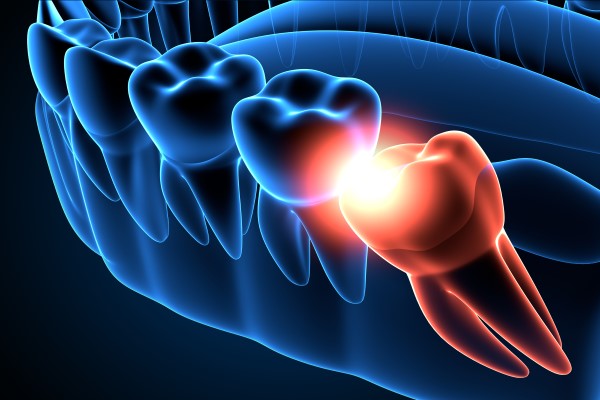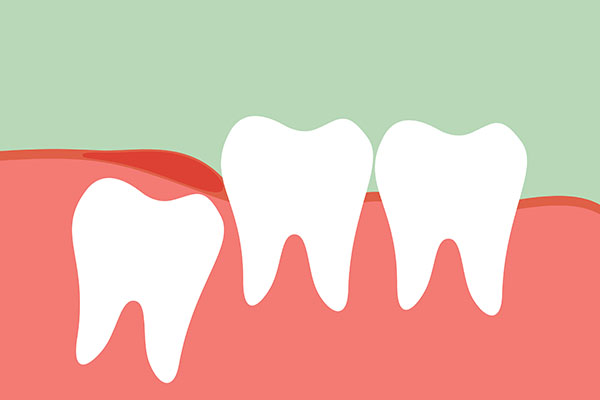What to Consider if Wisdom Teeth Are Not Removed
It is common for a person to choose extraction. This often occurs during the teenage years before the teeth have erupted, but removal can take place later on as well. These third molars usually break through between the ages of 17 and 25. You likely will have two on the top and bottom jaws, though some people have fewer than these or even none at all. Your dentist will evaluate whether it makes sense to have surgery to remove the teeth. This may not necessarily be required for you.
Why removal is frequently the right decision
A dentist may start looking at a patient’s wisdom teeth when the person is in their early teenage years. An X-ray can reveal how the tooth is developing and whether there will be enough room in the jaw for it. If this is the case, and the tooth does erupt, it can cause jaw and gum pain as well as pain in the wisdom tooth itself and surrounding teeth. Wisdom teeth are also difficult to reach with a toothbrush and floss. This can lead to tooth decay, gum disease, or infections. The teeth may also grow in crooked or be misshapen.
Step up the brushing
Even if a person does have room for wisdom teeth to come in correctly, it still might be difficult to keep them clean. To prevent dental problems in the back of the mouth, the individual needs to be vigilant about brushing. This should happen at least twice a day with a fluoride-based toothpaste. Make sure to spend several seconds each time on the third set of molars, hitting each side of the teeth.
Commit to flossing
Some people become frustrated trying to floss wisdom teeth because of their location. It takes diligence and patience to floss this area effectively. But this is an important task, as it reduces the risk of gum disease and tooth loss. Floss once a day, making sure to get back to the third molars. Gum swelling and bleeding in that area are signs that the person is not doing a good job. Effective flossing will keep the wisdom teeth healthy and strong.
Continue going to dental appointments
Patients should go to dental checkups and cleanings at least every six months. This is especially true for people who have wisdom teeth. The dentist will thoroughly clean them and look for concerns such as infections and decay. During the examination, the dentist will make sure that there is enough room in the mouth for the patient to feel comfortable. Neglecting dental appointments can cause issues to go undetected.
You can keep your wisdom teeth in the right situations
Though many people have their third molars removed, it is not always necessary. If your dentist determines that you can live with these teeth, make sure you follow these guidelines. Committing to good oral hygiene is vital. As you do these things, you can avoid many of the conditions that people develop.
Are you considering wisdom teeth in the Red Bluff area? Get more information at https://www.drelloway.com.
Check out what others are saying about our dental services on Yelp: .
Related Posts
Your third molars are your wisdom teeth. These teeth appear between 14 and 30 years old. Your mouth is not big enough to have two third molars on the upper jaw and another two on the lower jaw. This results in third molars growing in incorrect positions. Infection is a common outcome of wisdom teeth.…
People often have wisdom teeth extraction performed when these teeth come in behind the second molars of the upper and lower jaw. Wisdom teeth appear between the ages of 17-25 and may crowd the other teeth, causing pain and possibly changing the bite of the teeth. Those who undergo an extraction often have questions about…
There are numerous reasons why dental professionals recommend wisdom teeth extraction, and one is to prevent teeth misalignment. Wisdom teeth are the third molars located in the lower and upper parts of the jaw, behind the other molars on both sides. The teeth generally appear years after the other permanent teeth have come up. In…
If your wisdom teeth have begun to emerge, it is time to speak to your dentist. When these teeth are impacted, they can have some serious effects on your oral health. It is important for you to understand the risks these teeth pose and the steps you should take. Your dentist can walk you through…


